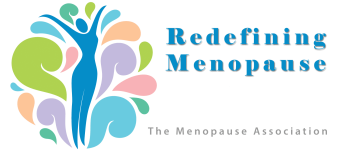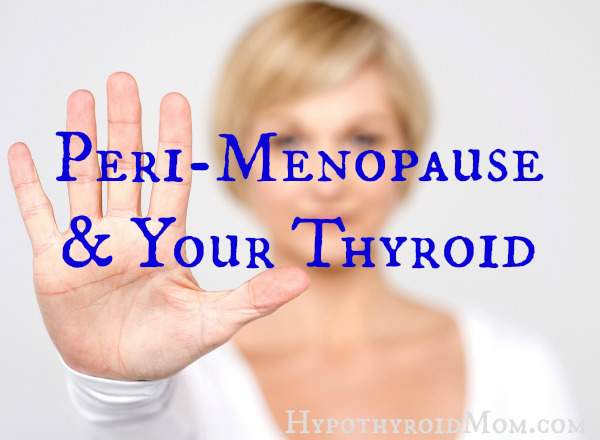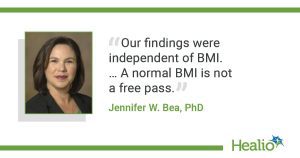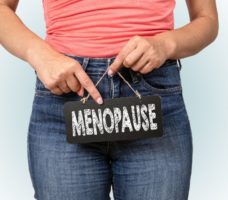Peri-menopause. Oh how I hate it. It all started for me at age 43 with a major shift in my menstrual cycles and then came the symptoms including major hair loss and what physically appeared as rapid aging of my skin. It threw my thyroid health into a tailspin too and what was once my “sweet spot” for thyroid medication dosage that made me feel great was no longer effective. Finding my new “sweet spot” took a few years but thankfully today at age 47 I feel fantastic again. I know there is more to come as peri-menopause can last 5 to 10 years leading up to menopause, and I know things will shift but as they “knowledge is power”. I will take the bull by the horns with every fall and turn and ensure I come up feeling well again…and I hope the same for you.
Written by Bridgit Danner, LAc, FNDP
Are your hormones going sideways since you turned 40?
Peri-menopause – the 5-10 years leading up to menopause – is a common time to be diagnosed with a thyroid condition.
In this article, I’ d like to address these questions:
• Why then?
• Why more in women?
• What can be done?
Peri-menopause may begin in your late 30s or early or mid 40s. You may notice that your PMS is worse. You may have spotting between periods. Over time, your periods will likely get more dramatic, with missed periods and heavy periods. Other symptoms may be popping up too, like anxiety, brain fog and weight gain. You may be thinking, “These sound like thyroid symptoms,” and you could be right!
But before we explore the thyroid connection, let’ s cover what is normally happening during peri-menopause.
What is peri-menopause?
Peri-menopause is, in short, the opposite of puberty. In puberty your ovaries are waking up to start your reproductive years. Your brain and ovaries are learning to work together to coordinate a monthly cycle, and often the first few reproductive years are hormonally unstable. In peri-menopause, the brain-ovary relationship is starting to shut down. The ovaries are closing up shop, but the brain keeps knocking at the door, trying to get the shopkeeper working again.
The sex hormone that needs to rise sufficiently in the first half of the month is estrogen. It is produced by the ovaries as they also grow eggs. If you produce enough estrogen and release an egg, you’ ll ovulate. And if that egg is healthy and hearty, you’ ll produce a good amount ofprogesterone in the second half of your cycle. (The egg sac, or corpus luteum, makes progesterone after ovulation.)
How your thyroid could be impacted in peri-menopause
Even though both estrogen and progesterone are declining in peri-menopause, progesterone declines more dramatically in this stage. This leads to a condition called ‘ estrogen dominance’. Too much estrogen can prevent the thyroid hormone from getting to where it needs togo and can prevent it from converting to its active form. For some women, their thyroid symptoms are simply a result of this high estrogen interfering with thyroid hormone activity. We’ ll talk about how to address estrogen dominance shortly.
Another thing estrogen effects is the immune system, which is a major player in the number one cause of hypothyroidism, the thyroid autoimmune disease Hashimoto’s thyroiditis. Estrogen is associated with stimulating the TH2 branch of the immune system (1). TH2 is short for T Helper cell type 2, a lymphocyte (immune cell). TH2 ispart of the adaptive immune system, which mounts a specific attack against pathogens.+ Adaptive immunity is usually a good thing, but it can also lead to autoimmunity if the antigen activity is directed towards itself. As estrogen is the dominant sex hormone in women, this helps to explain why autoimmunity and thyroid disease is more common in women. As we age, we also experience decreased immunity, and a tendency towards TH2 response.
“In the aged, however, naive cells are less likely to become effectors. In those that do, there is a documented shift towards a Th2 cytokine response. The elderly have impaired ability to achieve immunization but much higher levels of circulating autoantibodies, (due to the lack of naive effectors) impaired response to viral infections, increased risk of bacterial infections, and increased risk of both neoplastic and autoimmune disease.” (3)
However, there is hope and action we can take to keep estrogen in check.
What do we do?
1. Improve Gut Health
If you’ ve studied the thyroid, you know that gut health is key to prevent an autoimmune response and to convert thyroid hormone effectively. Did you know it’ s also important to clear estrogen dominance? One way your gut helps clear estrogen is through the estrobolome, “the aggregate of enteric bacterial genes whose products are capable of metabolizing estrogens.” (4)
You can be friendly to your gut by avoiding:
• Genetically modified foods (GMO) – These kill off friendly bacteria
• Sugars – These feed troublesome bacteria
• Small amounts of fermented foods like sauerkraut or kimchi
• A wide variety of fibers from salad greens, fresh spices, berries, etc.
• A long period from an early dinner to breakfast lets your gut bacteria grow in peace
2. Boost Progesterone
Progesterone helps keep estrogen in check, so boost it by giving your body ingredients to make hormones.
• Hemp Oil – I’ ve been very impressed with how 1 Tbsp of hemp oil a day helps my own peri-menopausal hormones. I use this organic, cold-pressed hemp oil by Nutiva
• Borage Oil – This oil, usually in pill form like this one, has gamma linoleic acid essential for smooth and healthy skin and female hormonal balance.
• Maca – This adaptogenic root herb helps boost hormone production and can benefit your energy levels and sex drive. This organic maca powder by Viva Naturals is gelatinized for enhanced bioavailability. Consuming maca in its raw state has been associated with digestive discomfort but gelatinization makes the root easier to digest. There is controversy over the potential problem of ingesting high quantities of goitrogens in raw form for hypothyroidism patients. Given that maca is a goitrogen, applying heat to the maca in a gelatinized form is preferable to consuming it raw since heat is said to deactivate the negative effects.
3. Help Out Your Immune System
If aberrant immunity could be a problem in your case, add some components that can balance your system:
• Fish Oil – Fish oil has a balancing effect on the immune system and decreases inflammation. (5) Quality matters with fish oil, so do research to find a good brand. I prefer OmegAvail Ultra by Designs for Health.
• Vitamin D – Vitamin D deficiency is found at higher levels in people with autoimmune thyroid disease. (6) Talk to your doctor about getting your vitamin D tested and restoring it to a level around 60-80 NG/DL through sunshine or vitamin D3 supplementation such as Vitamin D Supreme by Designs for Health.
• If you are unsure whether Hashimoto’s thyroiditis is the cause of your hypothyroidism, talk to your doctor about testing these two thyroid antibodies – Thyroid Peroxidase Antibodies & Thyroglobulin Antibodies. You can also order these lab tests and more yourself online.
About Bridgit Danner, LAc, FDNP
I grew up the daughter of an army officer, and we moved every few years, so I was always having to fit in at a new school. My parents were loving, but there wasn’t a lot of open communication in our home. As I result, I got good at staying under the radar and being ‘a good girl.’ But my true self, and my sensitive side, were not getting an outlet, and sometimes I’d have to have an hour-long crying fit to let it all out. This sensitive, courageous girl inside me did get some release as I took up animal rights and environmental causes even at an early age.
With my love of nature and desire to serve, it’s not surprising that I went into natural medicine. I had an amazing experience in Chinese Medical School, and went on to a vibrant private acupuncture practice. I then opened a larger clinic with multiple rooms and employees. I did not anticipate the amount of stress and worry this responsibility would create. Meanwhile I was busy getting married, and then pregnant 3 months later. I worked my tail off in my new clinic throughout my pregnancy. After my beautiful son was born, I crashed. I was overwhelmed, anxious and fighting with my husband. Once again I was suffering in silence.
Over time, my hormones normalized, my mood was better, and I was able to really let my light shine. I came out of that dark place of postpartum depression with a fierce desire to serve other women. I am now the founder of the Women’s Wellness Collaborative.
But, my story didn’t end there. In my late 30s, I started to show signs of female hormone imbalance again. While emotional stress was still a factor, age and a moldy house were now at play too. As women, we face different challenges as time passes. The challenges don’t end, but how we face them can improve tremendously.
References:
1. http://www.ingentaconnect.com/content/ben/cdtia/2004/00000003/00000001/art00010
2. https://en.wikipedia.org/wiki/Adaptive_immune_system#T_lymphocytes
3. http://www.medscape.com/viewarticle/775536_2
4. https://www.ncbi.nlm.nih.gov/pmc/articles/PMC3264051/
5. https://www.ncbi.nlm.nih.gov/pmc/articles/PMC4246012/
6. https://www.ncbi.nlm.nih.gov/pmc/articles/PMC4012880/
Take Back Your Thyroid Health! Sign up and never miss a post – it’s FREE
Share this post:
This content was originally published here.








